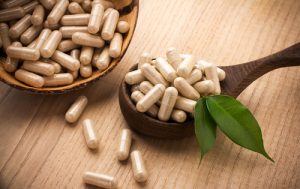Andropause is characterized by reduced testosterone production in males. It is associated with numerous uncomfortable symptoms such as fatigue, low sex drive and weight gain, among other symptoms. If you are experiencing the above symptoms, you are probably wondering if they relate to a low concentration of testosterone and about steps that are key in easing into andropause. You could also be worried about how long andropause lasts.
The Meaning of Testosterone
Adrenal glands and testicles are the sites for testosterone production. Testosterone is responsible for the secondary characteristics in males during puberty. Such features include the development of bulky muscles and the deepening of voices.
Testosterone promotes the production of sperm, synthesis of erythrocytes, fat metabolism and increased sexual desire. The hormone’s concentration peaks around the mid-20s and begins to gradually decline from 30 years of age. Research indicates that by the age of 70, testosterone falls to about half of the level it was at the peak.
Negative Influences
Even though men also experience a natural hormonal decline during aging, the rate is slower than what occurs during women’s menopause. Risk factors that may predispose one to andropause include alcoholism, obesity, diabetes, liver cirrhosis, emphysema, sleep apnea and chronic kidney disease. Other contributing factors include the following:
- Prolonged opioid medication use
- Hormonal imbalance
- Use of anabolic steroids
- HIV/AIDS
Other symptoms associated with declining testosterone levels include the following:
- Difficulty concentrating
- Depression
- Gynecomastia
- Erectile dysfunction
- Low confidence
Fortunately, there are useful tips for easing into andropause.
Tips for Easing Into Andropause

- Cruciferous vegetables
- Figs
- Cheese
- Whey protein
- Eggs
- Spinach
- Salmon
More foods to consider are kidney beans and shellfish. Bear in mind that excessive cooking of such foods may lower the concentration of vital nutrients such as zinc. It is also prudent to use monounsaturated oils when cooking.
There are prescription medications that can suppress the concentration of testosterone. Some are antagonists at the androgenic receptors limiting the production of androgen. Such anti-androgenic drugs prevent your body from utilizing the synthesized androgens.
Some of the anti-androgenic drugs to monitor are statins, opioids, spironolactone, cimetidine and ketoconazole. In case you are on any of the above medications, promptly consult your physician or pharmacist. They will determine if the drugs are also contributing to some of the andropause symptoms you are experiencing.
By remaining active, your body will get a signal that it should increase the production of testosterone to maintain your bone and muscle mass. Exercise is also crucial in reducing stress levels. This reduces the production of cortisol, which in turn stimulates androgen production. However, do not overdo the exercise because severe straining is also associated with low levels of testosterone.
Supplements 
Similar to medications, supplements have some side effects and possible interactions with drugs. Hence, it is necessary to consult your physician before taking any supplement to boost testosterone levels. The vital supplements include the following:
Panax Ginseng
It enhances libido and increases the concentration of testosterone. Additionally, Panax ginseng stimulates the production of nitric oxide, which improves the circulation of blood, which is important to individuals experiencing erectile dysfunction.
Dehydroepiandrosterone
The adrenal glands produce DHEA steroid, which is the precursor for both female and male hormones. DHEA promotes the production of testosterone and improves bone density, promotes well-being and relieves depression.
Branched-Chain Amino Acids
They suppress testosterone breakdown, hence boosting the concentration of androgen.
Hormone Therapy
In case lifestyle modifications aren’t helping you ease into andropause, you may consider hormone therapy. The medications will eliminate or relieve the andropause symptoms you are experiencing. Hormone-replacement therapy is necessary for men with hypogonadism or testosterone deficiency. The available options for testosterone therapy include injectable pellets, topical gels, patches and injections.
When seeking andropause treatment, it is vital to consult your physician, who manages complex hormonal changes. With the above tips, you will be sure to find long-term relief from the andropause symptoms.





